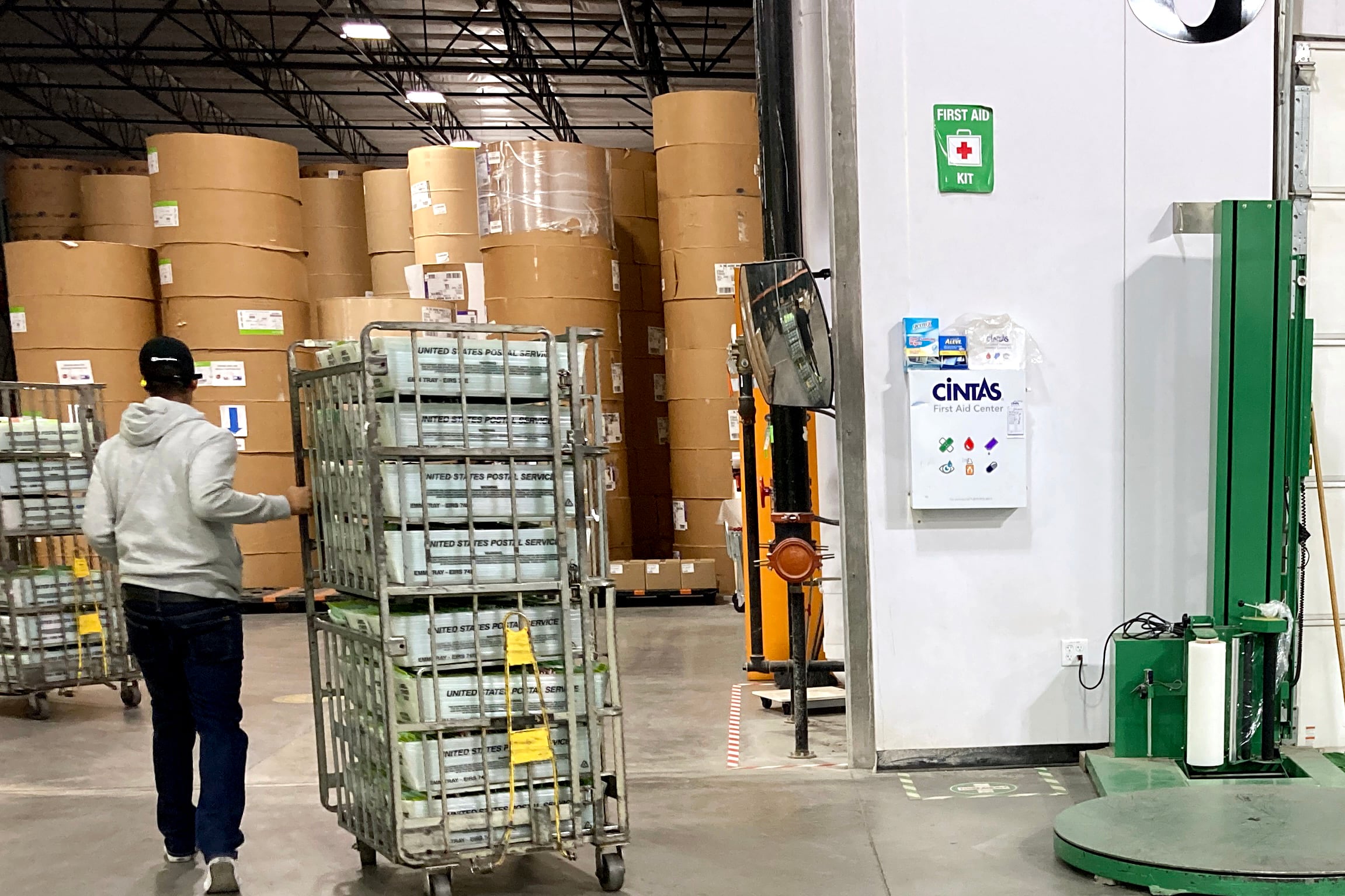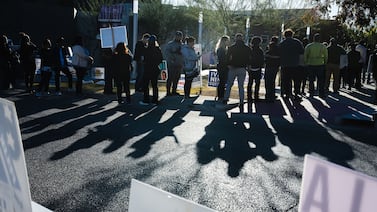Votebeat is a nonprofit news organization reporting on voting access and election administration across the U.S. Sign up for Votebeat Arizona’s free newsletter here.
Arizona’s Mohave County plans to add security features to its ballot paper for the 2026 midterm election, a measure officials hope will improve voter confidence.
The features could include watermarks or invisible fibers, according to a contract with election printing vendor Runbeck Election Services that county supervisors unanimously voted to approve Monday.
The features will cost somewhere between 10 to 15 cents a ballot, according to Runbeck’s proposal. About 83,000 Mohave County voters cast ballots in the last midterm election.
Supervisors Chairman Travis Lingenfelter said in an interview Tuesday that he thinks the change is worth the cost if it improves voter confidence, and he hopes other counties will follow.
The decision, by an all-Republican board representing the conservative northwest corner of the state, comes four years after GOP activists began to spread false claims that fake ballots were inserted into the state’s 2020 presidential election to rig the election for Joe Biden — claims that were then repeated by GOP candidate Kari Lake about the 2022 election after she lost the governor’s race.
Several audits proved Biden and Gov. Katie Hobbs, both Democrats, won Arizona, and courts have rejected any claim of widespread fraud in the elections. The state has multiple checks and balances to ensure that only ballots cast by registered voters are counted, including physical security and auditing protocols, such as those that reconcile the number of ballots cast with the number of voters who participated.
But persistent claims about fake ballots, and others, have caused voter confidence to tank in the state and across the country. Meanwhile, interest in adding security marks to ballots has increased in swing states. While California has long had watermarks on ballots, Georgia and a few Michigan counties, at least, recently added watermarks to their ballots as well.
In Arizona, the same GOP leaders who spread false claims about the election were among those who began to push for security features on ballots — including state Sen. Mark Finchem, a state representative at the time, who had ties to the founder of a firm that stood to benefit, Authentix.
Finchem has repeatedly tried, and failed, to pass legislation requiring all Arizona ballots to have security marks. Gov. Katie Hobbs vetoed his latest effort, SB1123, last week, saying that she is “confident in the ability of Arizona’s elections officials to administer free and fair elections without added expense and complexity.”
Authentix did not bid for the Mohave County ballot printing contract this year, according to county officials. Runbeck was one of two companies that applied through a competitive bidding process.
Runbeck said it can offer invisible fibers, a watermark, an infrared taggant — which is difficult to duplicate — and paper that doesn’t respond to UV light. It’s unclear at this point which features Mohave County will add, or how much it will ultimately cost. A recent test in Cochise County found that voting machines from Election Systems & Software, which Mohave County also uses, can properly tabulate ballots using Runbeck’s features.
Runbeck itself has been the target of conspiracy theories, including a claim from Lake that tens of thousands of ballots were inserted at its Phoenix facility during her election.
During public comment at the Mohave County meeting on Monday, Kingman resident Jennifer Esposito told supervisors that they should consider other companies for ballot printing, in part because she has read about “issues that Runbeck has had in the past.”
Supervisor Sonny Borrelli, who took office in January and was previously one of the state senators pushing for greater security of mail ballots, assured residents before the contract vote that Runbeck was “top rate.”
Jen Fifield is a reporter for Votebeat based in Arizona. Contact Jen at jfifield@votebeat.org.




